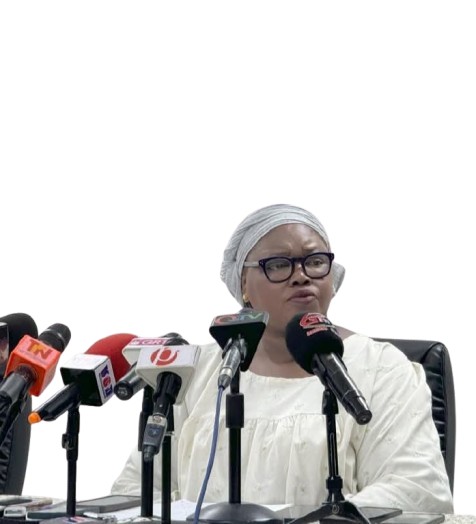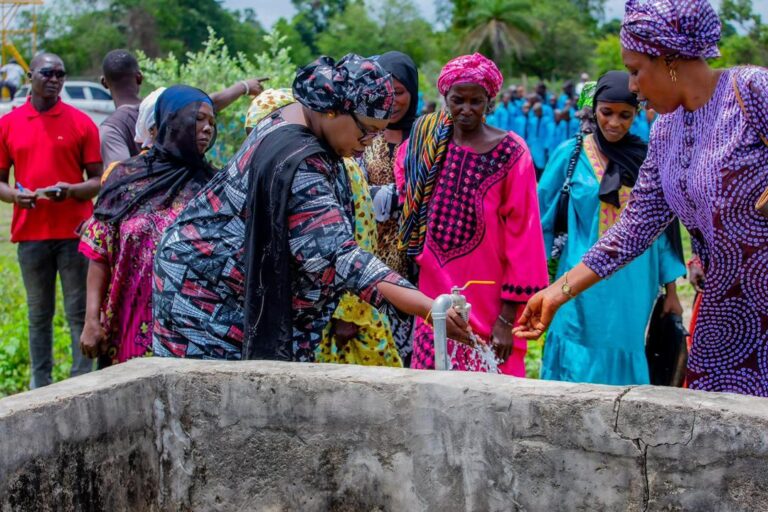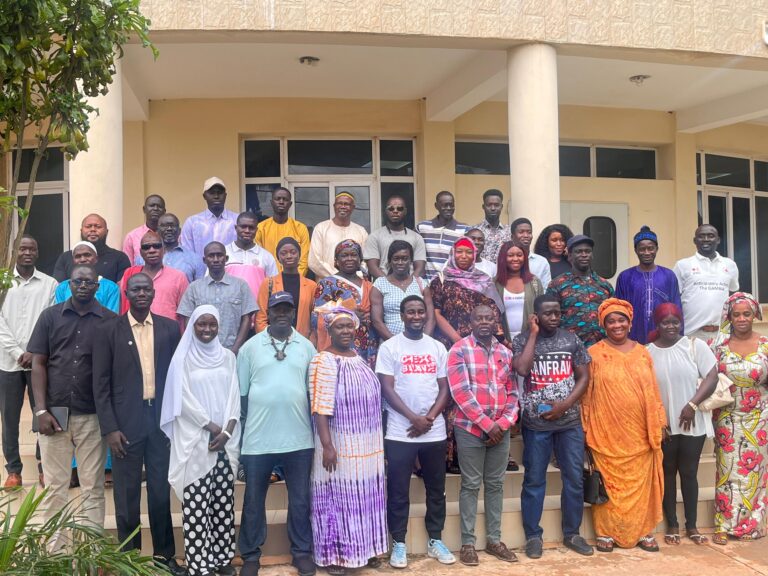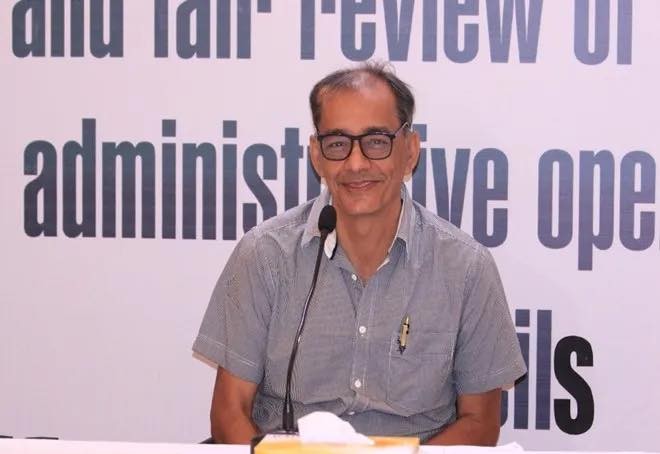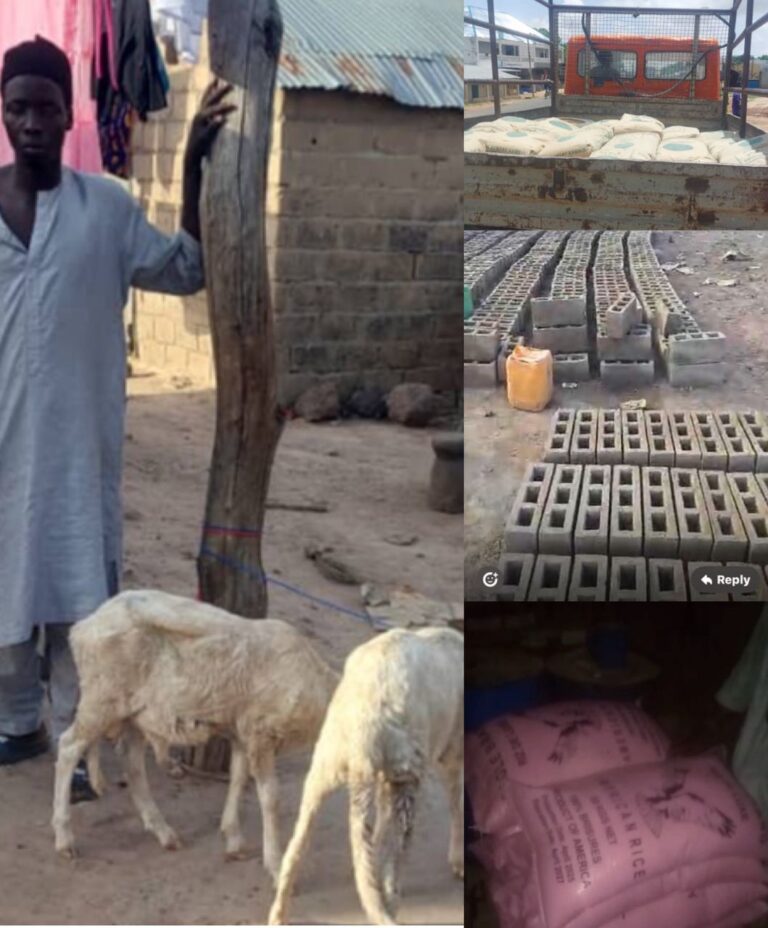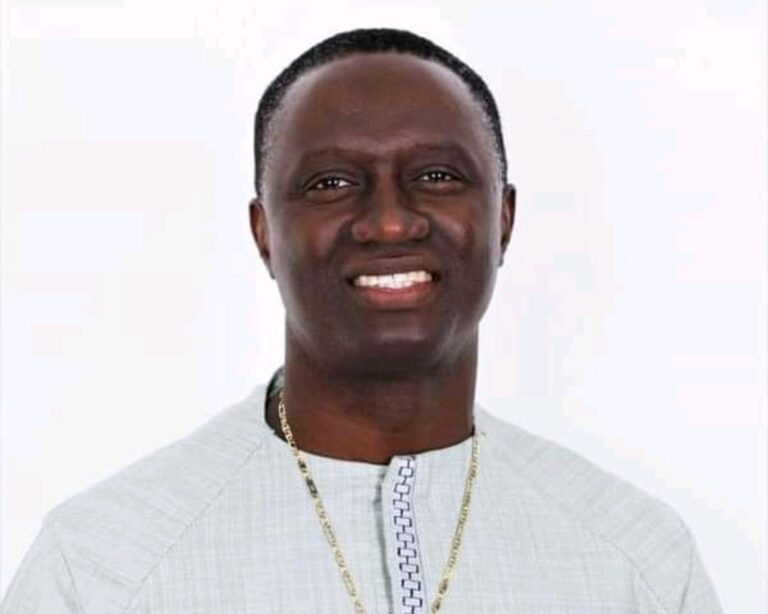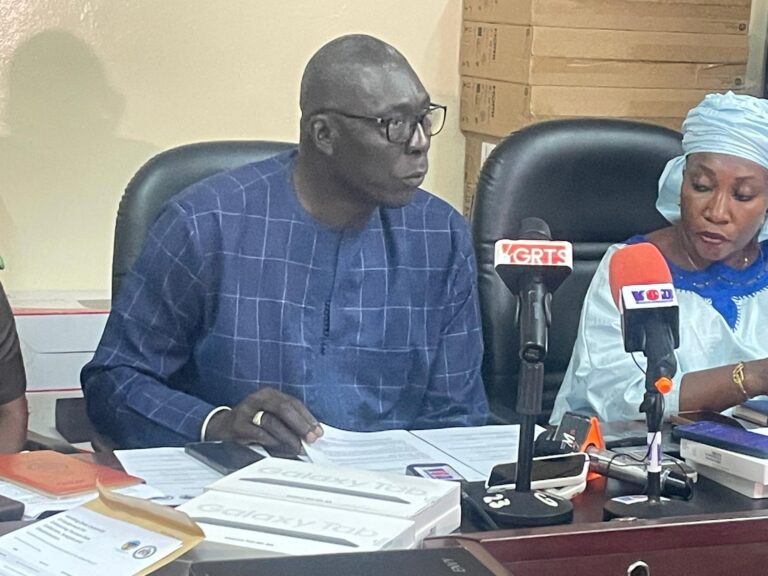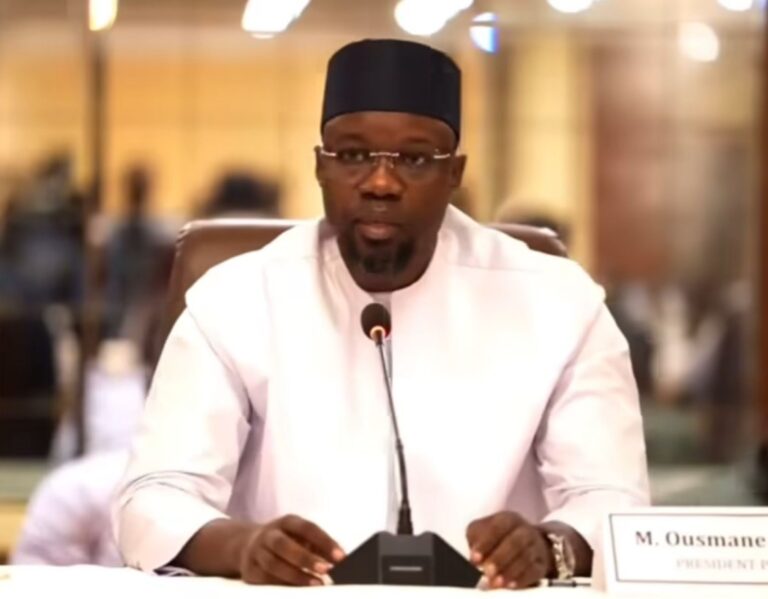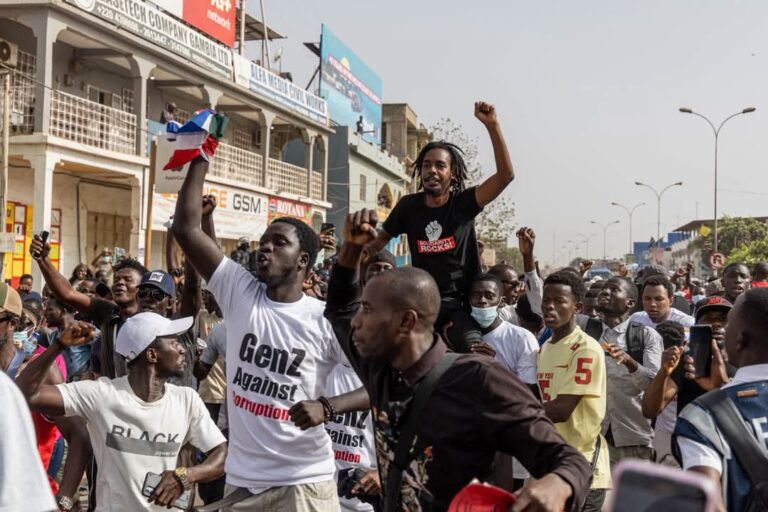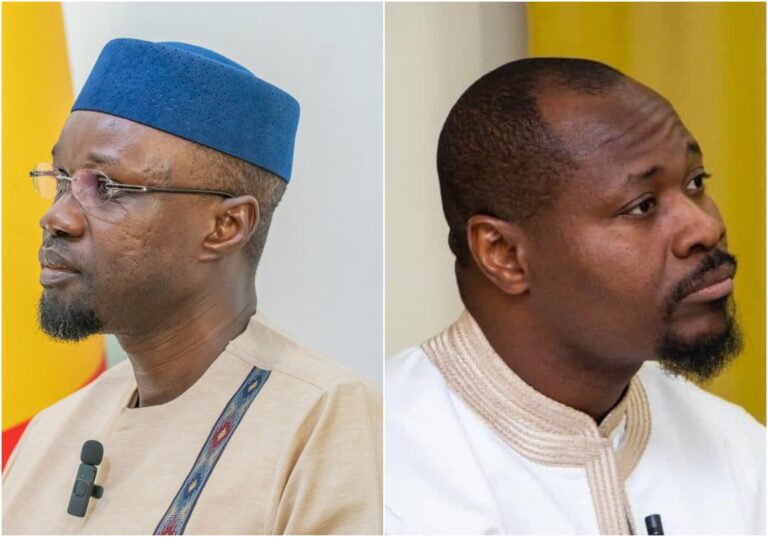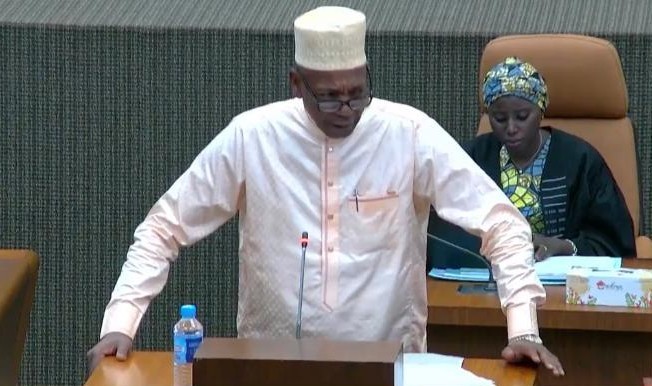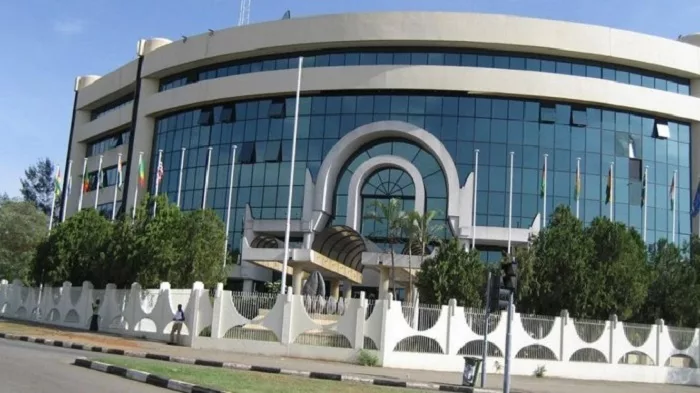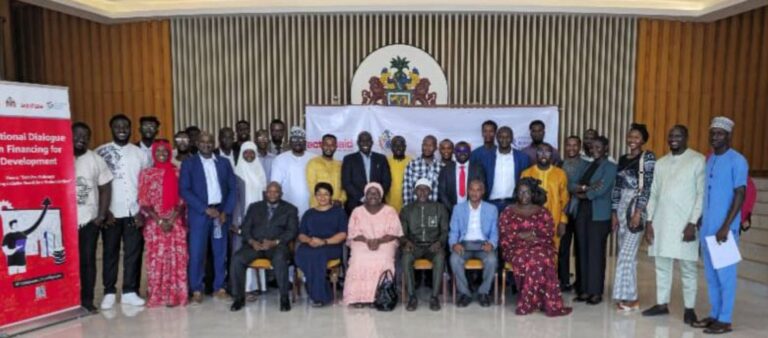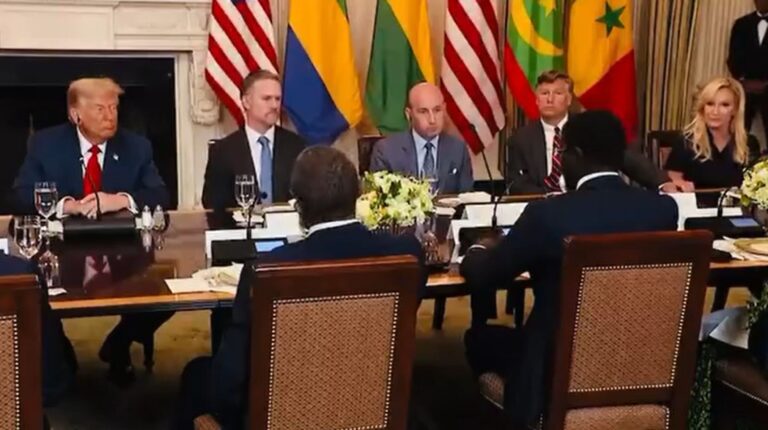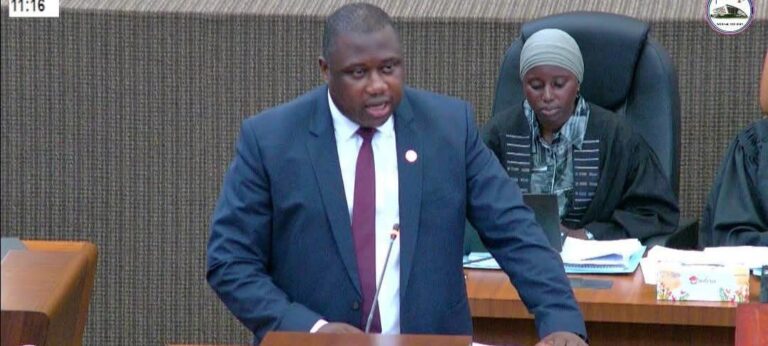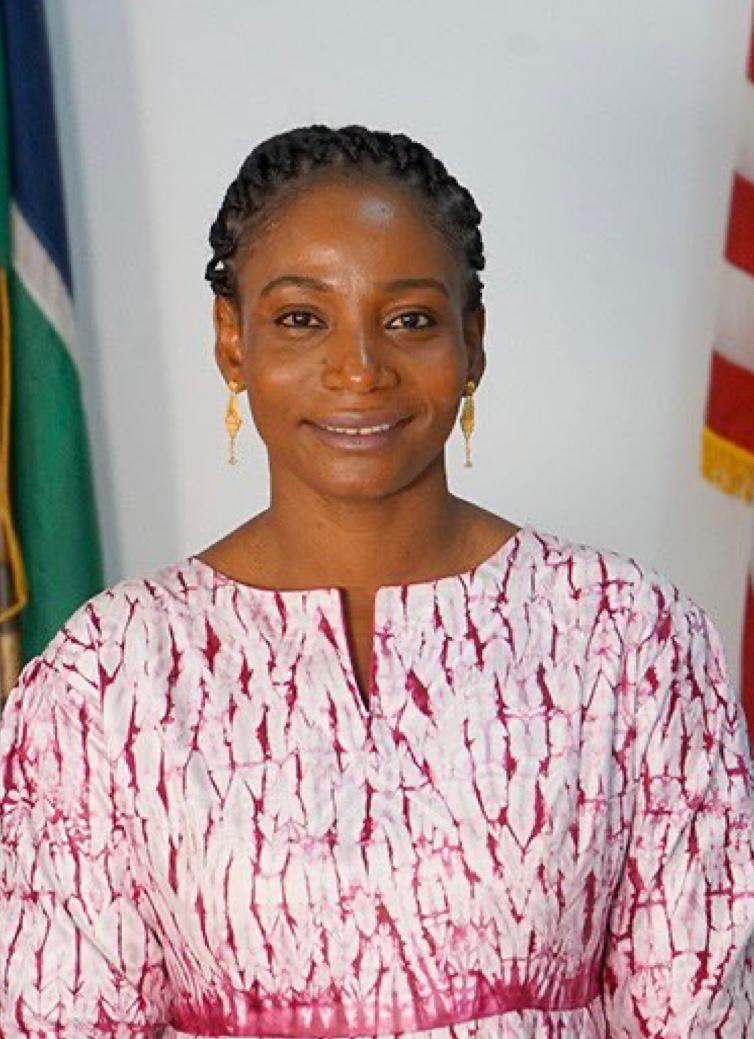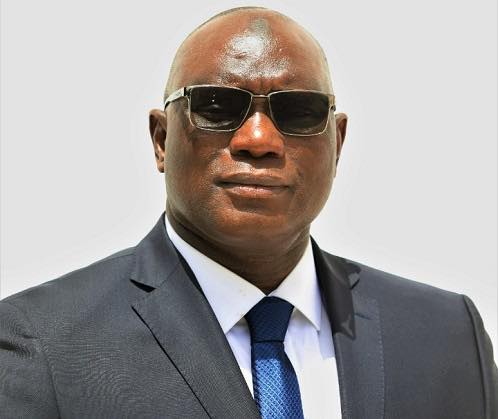Mayor Lowe Reaffirms Denial of Involvement in D20 Million Land Deal
8 Years in Exile: Former President Jammeh Maintains Influence in Gambian Politics
Written by: Dawda Baldeh
While still in exile, eight years after his 22-year iron-fisted rule over The Gambia, former President Yahya Jammeh continues to exert significant influence over the country’s political landscape. From his base in Equatorial Guinea, where he has lived since January 2017, Jammeh has used social media—particularly WhatsApp—to organise large rallies in The Gambia and even sack executive members of his APRC party, which has since split into rival factions.
In this explainer, The Fatu Network chronicles The Gambia’s post-Jammeh political trajectory and how the country’s most controversial former leader continues to assert his presence from abroad.
After losing the 2016 presidential election to current President Adama Barrow, Jammeh initially refused to step down, prompting an ECOWAS military intervention. He was subsequently exiled to Equatorial Guinea under an agreement brokered by the African Union and ECOWAS to end the political crisis.
Not long after his departure, remnants of the Alliance for Patriotic Reorientation and Construction (APRC) began calling for his return, praising him as a “builder of bridges.” In 2020, thousands of Jammeh supporters marched across the Greater Banjul Area demanding his return. “He can come as a private citizen and stand for election and win. He can also become the president. We want him to be the president of this country. We see what he has done. We have seen it. He is a peaceful man,” one supporter said of the former leader—widely known for his repressive rule.
Indeed, the man who once sat at the epicentre of Gambia’s political power and intrigue is relishing the idea of returning home. From the comfort of his farm in Equatorial Guinea, Jammeh told thousands of supporters via a recorded WhatsApp audio that he would “soon return.” He added, “I don’t want any violence. I don’t want anyone to touch anything or destroy anything. The agreement must be implemented,” referencing what he claims is a deal with the African Union that would facilitate his return.
Before the 2020 rally, Jammeh had already made his intentions clear to supporters in Kanilai, declaring via WhatsApp, “From today, I want to take full leadership of the party as outlined in the APRC Constitution. I am the supreme leader, the flagbearer, and the party chairman, and I want to make this very clear.” This was his first public statement since leaving power in January 2017.
Jammeh, who insists he remains the party’s supreme leader, expelled seven executive members from the APRC faction. In a January 22, 2025 WhatsApp message, he announced he had taken control of his faction and dismissed interim leader Yahya Tamba. In February, he again removed one of his loyalists, Bakary Badjie, just days after Badjie declared his intention to run in the 2026 presidential election.
On several occasions, Jammeh has released audio messages criticising the Barrow-led government. In one such message, he accused Senegalese Prime Minister Ousmane Sonko of stealing Gambia’s natural resources, including oil—an allegation that further intensified public debate on the matter. While rights groups, opposition parties and civil society continue to demand transparency around Gambia’s natural resources, President Barrow has publicly denied any collusion with Senegal over oil dealings.
More recently, Jammeh released a 56-minute WhatsApp audio in response to rumours that he had endorsed Foni Berefet lawmaker Amie Colley’s affiliation with Barrow’s National People’s Party (NPP), a claim he firmly denied.
APRC Factions and ‘Unholy’ Alliances
After Jammeh’s departure, APRC deputy leader Fabakary Tombong Jatta took over the party’s leadership. On 4 October 2021, the APRC announced an alliance with President Barrow’s National People’s Party (NPP). The announcement sparked widespread criticism from activists and victims of Jammeh’s regime, who denounced the alliance due to the human rights abuses committed under Jammeh’s rule.
Jammeh, speaking again via WhatsApp from exile, condemned the alliance as “unholy” and distanced himself from it. He went further, dismissing leading members of the party, including Tombong Jatta. Despite Jammeh’s objections, the Independent Electoral Commission (IEC) continued to recognise Tombong as the official party leader. Those Jammeh sacked remained loyal to Tombong, while the other faction—known for its “No to the Alliance” stance—rallied behind Yahya Tamba.
Instead of aligning with Barrow’s camp, Jammeh declared his faction’s alliance with the Gambia Alliance for National Unity (GANU), led by his former Justice Minister, Sheikh Tijan Hydara.
APRC Divided
While Jammeh vehemently rejected the APRC-NPP alliance, President Barrow defended the partnership, stating it was in the national interest. Once one of The Gambia’s most powerful political parties, the APRC now faces serious fragmentation.
2022 National Assembly Elections
Leading up to the 2022 National Assembly elections, both APRC factions fielded candidates. The faction led by Yahya Tamba won five seats in the Foni region—Foni Jarrol, Bondali, Kansala, Berefet, and Bintang—all strongholds of Jammeh, though they contested as independent candidates. Meanwhile, the Fabakary-led APRC, still recognised by the IEC, secured two seats in Jeshwang and Bundungka Kunda, both located in the Kanifing Municipality.
Conclusion
The Gambia’s political chapter with Yahya Jammeh is far from closed. The next chapter—whether it involves his return, potential prosecution, or continued exile—remains uncertain. Will Jammeh be held accountable for the atrocities he is accused of, or will Gambians choose to move on and consign his authoritarian legacy to history? Only time will tell.
Sohm Women Garden Rejuvenated with REFELA Water Protect
By Dawda Baldeh
The network of locally elected women, REFELA Gambia Chapter, under the presidency of Mayor Rohey Malick Lowe of Banjul City Council, has boosted excitement among women gardeners in Sohm with the inauguration of a newly installed water facility to rejuvenate their gardening activities.
“Today marks a historic milestone for the women of Sohm and a proud moment for REFELA under my leadership,” Mayor Lowe told reporters.
With the unwavering support of her partners, the state-of-the-art water supply system came to life for the Sohm Women’s Garden in the West Coast Region.
This transformative project, named in honour of her late brother, Kebba Ousman Drammeh, features boreholes, multiple water tanks, garden reservoirs, and an extensive pipe network, ensuring sustainable access to water for hundreds of women gardeners.
“What was once a vision is now a reality, and the token harvests presented to me by the women of Sohm stand as a powerful testament to what we can achieve when we invest in women’s empowerment,” she added.
Residents commended REFELA and its partners for the support, which they said would break the cycles of poverty, create jobs, and boost economic growth.
The water facility is designed to supply water simultaneously to ensure year-round farming, boost productivity, income, and food security.
“Naming this borehole after my brother Kebba symbolises our shared commitment to uplifting communities, a legacy of service that lives on,” Mayor Lowe added.
The community unites in their commitment to utilising the water facility judiciously to improve their economic activities.
They described it as a lifetime gesture that will go a long way in addressing their water crisis.
“This achievement would not have been possible without the generous support of Senator and Deputy Foreign Minister Mohammed Isah Dar of Pakistan and his family,” the BCC mayor remarked.
Communities Rise Before the Rains: Kotu Stream Wards Trained as Flood Risk Looms
Written by: Alieu Jallow
With over 200,000 people living along the flood-prone Kotu Stream corridor, disaster isn’t just a possibility — it’s an annual threat. Now, thanks to the West Africa Coastal Areas Resilience Investment Project (WACA ResIP 2), in collaboration with The Gambia’s National Disaster Management Agency (NDMA), communities are stepping up to confront it head-on.
In line with the Seasonal Rainfall Prediction (SRP) for July–September 2025, WACA and NDMA have organised a capacity-building workshop for Ward Disaster Committees. The training targets nine wards along the Kotu Stream, each of which finalised a contingency plan earlier this year with WACA’s support.
The Department of Water Resources’ JAS 2025 forecast predicts average to above-average rainfall, with a 35% chance of above-normal and a 45% chance of near-normal rainfall. Experts have warned that this could lead to widespread flooding, threatening crops, property, and lives — making this workshop all the more urgent.
Speaking at the opening of the training, NDMA Monitoring and Evaluation Officer Babucarr Fofona, speaking on behalf of the Executive Director, highlighted that more than 800 households in the Kanifing Municipality and the West Coast Region were affected by disasters last year — mainly flash floods and domestic fires.
“These events have forced many families from their homes, destroying personal belongings and food supplies, and worsening their vulnerability,” Fofona said. He attributed much of the damage to poor drainage infrastructure, unplanned settlements, and individual behaviours.
Recognising the urgent need, NDMA and the WACA project convened this forum to equip participants with the practical skills and knowledge to implement the contingency plans developed last year.
“Take this opportunity seriously — not just for your own growth but for the safety and resilience of your communities and the country at large. This training comes at a crucial time. The two days allocated to operationalise your ward disaster plans are a proactive and strategic step toward preparedness, mitigation, response, and recovery. This aligns with the National Disaster Risk Management Policy and Strategy 2024–2033 and the Sendai Framework for Disaster Risk Reduction 2015–2030,” he urged.
The JAS report warned that expected rainfall could lead to flooding in both riverine and low-lying urban areas like Kotu. It recommends raising community awareness, cleaning drainage systems, and conducting simulations to improve disaster response.
Muhammed Leroy A. Gomez, Environmental Specialist with the WACA project, said the 2025 rainfall forecast was the key motivation behind organising the training. He encouraged participants to take full advantage of the opportunity to help build resilience across their communities.
“Each ward sent about 13 members to the training, but there are others back home who couldn’t make it. So once you return, share the knowledge and skills you’ve gained with your fellow community members,” he urged.
Latrikunda Sabiji Ward Councillor Musa Bah emphasised the training’s importance in preparing for disaster response.
“This contingency plan training is very important. It covers key areas like who to contact — fire service, police — how to evacuate, and how to distribute relief. During floods, many houses can’t even put out fires. We look forward to activating this plan so that we can respond effectively when disaster strikes,” he said.
Binta Sey Jadama, a facilitator and senior executive at NDMA, stressed the critical role of local communities in disaster response.
“Preparedness starts at the grassroots. That’s why we are building the capacity of local communities so they can be the first responders during any emergency,” she said.
WACA’s approach places communities at the heart of resilience-building — not just as beneficiaries, but as frontline actors. With the rainy season just weeks away, the efforts along the Kotu Stream could be the difference between disaster and survival.
As The Gambia braces for an uncertain rainy season, the message is clear: preparedness begins at the community level. And along the Kotu Stream, that work is already underway.
Businessman Claims He Paid D20 Million for BCC Land With Mayor Lowe’s Approval — Mayor Denies Knowledge
Written by: Seringe S.T. Touray
Editor-in-Chief, The Fatu Network
Nandu Rajwani, Chief Executive Officer of EMK Stores Limited, told the Local Government Commission of Inquiry on Thursday, July 10, that he paid a total of 20 million dalasis for land in Banjul with the full knowledge of Banjul Mayor Rohey Malick Lowe — a claim that directly contradicts the mayor’s earlier testimony.
Rajwani appeared before the commission to testify in a widening probe into controversial land transactions involving the Banjul City Council (BCC). His testimony centres around two land allocations — one behind the National Assembly and a second on Bond Road — which he said were both facilitated through an intermediary, Chabell Elhajj, whom he described as “the middle agent.”
According to Rajwani, the initial deal began in 2019 when Elhajj approached him with a land allocation letter purportedly issued by BCC. “The gentleman, Shar, he came with an allocation letter in his company name. He said he had land to sell to me. We negotiated the price and he gave me the letter,” Rajwani told the commission.
Rajwani said that, based on this initial contact, he agreed to a price of 15 million dalasis and signed a formal agreement with Elhajj’s company, C Consulting Ltd. The deal was documented in a written contract dated 14 May 2019.
“When we had a lease for the first land, which was behind the National Assembly, our work was stopped,” Rajwani said. “I went to the mayor to ask her what was happening. She promised me that another land would be allocated.”
He told the commission that Mayor Lowe herself instructed him to pay an additional five million dalasis for the larger Bond Road plot, bringing the total to 20 million. “Yes, the mayor told me to pay five million extra. She confirmed it,” he said.
Rajwani said all payments were routed through Elhajj, sometimes by cheque and sometimes in cash. He explained that on some occasions, he issued “open cheques” at Elhajj’s request — cheques with no named recipient — which Elhajj could then cash or deposit.
Pressed on why such informal arrangements were used for such large sums, Rajwani said, “Maybe they didn’t want to show how much they sold the land for. That’s between them.” He added: “I was not thinking this thing would take me up to here. I thought it was an easy job.”
When asked whether BCC was officially aware of the payments, Rajwani insisted they were. “The mayor knows everything about it. She knows the full 20 million was paid,” he claimed. “We used to call her after payments were made to inform her, and she would say ‘OK, OK.’”
However, Mayor Lowe had appeared before the commission two weeks earlier and denied any knowledge of Rajwani’s payments. “I don’t know who Mr. Rajwani is,” she told the commission. “All I know is that the Council allocated the land to Mr. Elhajj and entered into a lease agreement with him for two million dalasis. What happened between him and Mr. Rajwani, I have no idea.”
The mayor insisted that no land was sold for D20 million through her or the council, and denied giving instructions to transfer the lease to EMK Stores. When asked why EMK Stores — not Elhajj — appeared on the lease, she said: “That was a mistake from the council staff. The council has written to the Ministry of Lands to correct it.”
Counsel Patrick Gomez pressed her further: “You say you don’t know Mr. Rajwani, yet the lease was issued directly to his company. How do you explain that?” Lowe responded: “I only came to know about him after hearing a voice note he sent. Prior to that, I had no dealings with him.”
Rajwani’s testimony also revealed that despite paying the full amount and receiving lease documents, his company was unable to develop the land due to environmental restrictions. The National Environment Agency (NEA) reportedly blocked the development over flood risks and environmental concerns at both the National Assembly and Bond Road sites.
Frustrated, Rajwani’s lawyers wrote several letters to BCC between 2022 and 2023, requesting alternative land or a refund. One letter dated April 5, 2023, from Edrissa Drammeh & Associates stated: “Despite the signing of the lease agreement… and the payment of the agreed sums, our client has not been able to have the use of the land.”
Another letter, dated September 29, 2022, said EMK Stores had incurred “substantial losses” and requested a refund of 35 million dalasis, citing inflation, project delays, and opportunity cost. “Our client applied for a development permit… but was denied clearance. The land is no longer suitable or available for the intended purpose,” it read.
During questioning, Counsel Gomez raised concerns over the informality of the transactions and why payments were not made directly to the council. Rajwani said he was primarily focused on acquiring the land, not tracing the funds, and speculated: “Maybe BCC didn’t want to show how much they sold the land for. I don’t know. My goal was to get the land, not to follow the money.”
He admitted that he could not guarantee all funds were transferred to BCC, saying: “I don’t know what they discussed. That’s between them. I was just trying to get my papers.”
Rajwani is expected to return to the commission on Monday with receipts and documentation of the alleged payments, including proof of bank transfers and cheques. The commission will compare his records against earlier testimony provided by Elhajj and Mayor Lowe.
Mayor Lowe, who maintains she was not involved in any financial dealings with Rajwani, is also scheduled to reappear before the inquiry to address contradictions between her testimony and the claims now made by the businessman.
The Local Government Commission of Inquiry, which began in 2023, is investigating irregularities in land allocation, financial mismanagement, and procurement within local councils. The unfolding revelations in the EMK-BCC land case have quickly become one of the inquiry’s most controversial focal points.
Support Pours in for Ebrima Ndow, the Blind Gambian Hacker
By Alieu Jallow
In the weeks following the captivating yet poignant story published by The Fatu Network about Ebrima Ndow, a remarkable young man born without sight but gifted with exceptional hacking skills, a transformative chapter in his life is beginning to unfold.
Ebrima resides in the village of Nduku Dawen in the Central River Region. During a serendipitous encounter with The Fatu Network’s Alieu Jallow in Wassu, Ebrima revealed the depth of his journey. In their heartfelt conversation, he candidly shared the numerous obstacles he faces, particularly the pressing issue of inadequate housing, which has weighed heavily on his aspirations. With a keen desire to shift away from the world of hacking, he expressed his hopes for a more sustainable and ethically sound livelihood, yearning for a future where his talents could flourish in a way that uplifts not just himself but his community as well.
That heartfelt story struck a chord across borders
A Gambian based in the United States, who wishes to remain anonymous, has stepped forward in a big way. The benefactor is now funding the construction of a house for Ebrima, starting with the moulding of over 35 bags of cement. In addition, he donated two sheep, a male and a female and 10 bags of American rice to help Ebrima kick-start an agricultural and small-scale business venture.
The generosity didn’t stop there. Through The Fatu Network’s Wave account, D40,000 has also been raised to support Ebrima’s transition to a more dignified and stable life.
Fashion designer Ramatoulie Bah has also added a personal touch to the support by gifting Ebrima a brand-new, tailor-made kaftan for Tobaski.
Ramatoulie says what touched her heart and pushed her to act is not just the fact that this boy is blind, it’s the fact that, despite his disability, he works hard every single day to support his parents and siblings. His determination and sense of responsibility moved them deeply.
“As young female entrepreneurs, my younger sister and I know what it means to face disadvantages. Being young, being a woman, and trying to run a business – it’s never easy. But his story reminded us that no matter the challenge, you can still make an impact, you can still push forward.
We decided to donate the Tobaski outfit not just as a gift, but as a symbol of encouragement for him, for ourselves, and all young people facing obstacles. His courage gave us even more motivation to believe in our business and work harder to see it succeed. We hope his story reminds everyone that challenges are not the end, they are the beginning of greatness. Never give up. Work harder. Your success will come,” she states.
This wave of kindness marks a hopeful chapter in Ebrima’s life. What began as a story of hardship is gradually turning into one of possibility, resilience, and the power of shared humanity.
Parliament Approves Student Loan Scheme to Expand Access to Higher Education
By: The Fatu Network News Desk
The Gambia’s National Assembly has officially passed the Students Revolving Loan Scheme Bill, 2025, paving the way for greater access to tertiary and higher education across the country.
In a press release issued Friday, July 11, the Ministry of Higher Education, Research, Science and Technology (MoHERST) described the bill’s passage as “a major step forward in the Government’s efforts to make tertiary and higher education more accessible and inclusive for all Gambians.”
According to the Ministry, the new legislation will establish a national loan scheme aimed at supporting students financially throughout their educational journey. “Under the visionary leadership of His Excellency President Adama Barrow, this Scheme aims to remove financial barriers and promote national development through education,” the statement reads.
The newly passed law provides for the payment of tuition and related fees for students enrolled in accredited post-secondary, tertiary, and higher education institutions. It will also offer funding for academic research and learning within registered institutions and accredited programmes in The Gambia.
Among its stated objectives, the loan scheme seeks to “support students in financing their education and training programmes,” and to “advance the national ideals outlined in the Constitution of The Gambia.”
With the Bill now passed, the Ministry reaffirmed its dedication to “expanding opportunities for all students, strengthening the national education system, and investing in the future of Gambian youth.”
Ministry of Tourism Provides Cutting-edge Data Collection Equipment to Partner Institutions
By Dawda Baldeh
The Ministry of Tourism, Arts, and Culture has provided cutting-edge data collection equipment to its partner institutions to enhance the collection, analysis, and dissemination of tourism data.
The Tourism Diversification and Resilience in The Gambia Project, which is supported by the World Bank through IDA funds, aims to enhance data collection and dissemination.
During the handover ceremony in Banjul, Abdoulie Jobe, Minister of Tourism, Arts, and Culture, referred to the event as a significant achievement in transforming the management and growth of tourism in The Gambia through the use of accurate data.
The equipment includes computers, tablets, servers, and printers.
“The GTBoard will use the equipment to improve data collection,” he stated.
The recipients include the National Centre for Arts and Culture, the Gambia Immigration Department, and the Ministry of Tourism, Arts and Culture.
“Beneficiary institutions are expected to ensure the proper use and maintenance of the equipment for its intended purposes,” he stressed.
He expressed hope that this would allow them to evaluate the true economic impact of tourism across various sectors to build long-term institutional capacity.
“Our aim is to create a sustainable, data-driven tourism sector where decisions are made based on facts rather than opinions,” he remarked.
Momodou Ceesay, the Project Director, highlighted the essential role the equipment will play in tourism data collection.
This initiative is part of key project components designed to enhance data collection in tourism statistics.
“Without statistics, we cannot account for the number of tourists visiting our country,” he stated.
Assistant Commissioner, Binta KJ. Barrow, Commissioner for Migration Management, speaking on behalf of the beneficiaries, noted that the provision of equipment will significantly improve their operational capabilities, emphasising that such initiatives are vital and commending the Ministry of Tourism and its partners for their efforts.
The equipment provided to various institutions is expected to facilitate the collection, analysis, and dissemination of tourism data in the country, ensuring informed decision-making and strategic planning for data gathering to account for tourism’s contribution to the economy.
Sonko Slams Internal Divisions and “Authority Crisis” in Senegal During PASTEF Council Speech
By: The Fatu Network News Desk
Senegalese Prime Minister and PASTEF party leader Ousmane Sonko delivered a fiery address on Thursday during the installation of his party’s new National Council. Speaking not as head of government but as party chief, Sonko fiercely criticised internal factions, mounting political attacks, and what he described as a deep crisis of authority at the highest levels of the state.
“The problem in Senegal is not just a political crisis,” Sonko declared. “What this country suffers from is a crisis of authority. If we continue like this, we won’t even finish a single term.” Calling for space to govern effectively amid ongoing tensions, he added: “Let me govern! Things will change, because I cannot stand injustice.”
Addressing recent rumours and political pressure, Sonko flatly denied any intention to step down. “They talk about resignation, but I’m not going anywhere,” he said. “They think they can force me out, but they are wasting their time. I have a responsibility. I am not resigning—let that be clear!”
He also warned of growing internal discord within his own party, accusing some members of forming rival camps and pursuing personal ambition over party unity. “Clans are forming at the top levels of PASTEF, in total disregard for the values of this party. I will not accept it,” Sonko said. “They puff out their chests, but can’t even win a single hamlet… They’ve even gone as far as Touba to scheme and conspire. Those trying to divide PASTEF to gain power need to leave.”
He further pushed back against narratives suggesting a power struggle between him and President Bassirou Diomaye Faye. “Those who want to paint me as the villain and him as the hero are wrong. Diomaye is my brother, my friend. I’m not coveting his position,” Sonko said. He also accused certain media outlets of fuelling these perceptions, alleging that some journalists are being used to manufacture division between him and the president. “There are people using the press to turn us against each other,” he said. “But it won’t work. We’re focused on the same goals.”
Responding to recent criticism from the Union of Magistrates over his alleged interference in judicial matters, Sonko pushed back strongly: “Why would I need an audience with the union of magistrates? Two years ago, under the former regime, they were made to do anything—and they never flinched.” He added, “Justice does not belong to them. Let’s be clear: we are the state, and it is up to us to set the direction of the administration. That is the order of things.”
GALA Alleges State Refusal to Register Movement Amid National Expansion Drive
By: The Fatu Network News Desk
Gambians Against Looted Assets (GALA), the youth-led civic group pushing for transparency in the handling of former President Yahya Jammeh’s assets, has accused the Gambian authorities of blocking its registration as a lawful association – allegedly over the use of the term “Gambians” in its name. The reported refusal, which GALA claims was issued verbally by the Registrar of Companies, has drawn criticism from legal observers who argue that such action may violate constitutionally protected rights.
Despite the setback, GALA has declared itself a national movement and announced a new, inclusive structure aimed at empowering regional coordination and citizen engagement across the country. The group, known for leading a high-profile protest in May 2025, says it will continue to push for justice and accountability in public life.
“After a national solidarity protest, the youths of this country rediscovered their identity as the drivers of change,” GALA said in a statement posted to social media. “Prompting the need for a national movement to take the future in their own hands and chart a new destiny for the homeland.”
One of GALA’s most visible figures is Ebrima Jallow, a law student and poet better known as The Ghetto Pen, who currently serves as the movement’s Secretary and spokesperson. Jallow was arrested during the May protest, reportedly assaulted while in custody, and later launched a hunger strike in protest of his treatment and the broader crackdown on civic activism.
GALA further stated:
“We write to recommit ourselves to your service. We write to reassure you of the end of impunity.”
Alleged Refusal Sparks Legal Concern
According to GALA, a formal application was submitted through the Attorney General’s Chambers but was verbally rejected by the Registrar on grounds that the term “Gambians” in the association’s name was impermissible. No written decision or legal explanation has reportedly been provided.
GALA contends that the refusal lacks legal basis and violates Section 25(1)(e) of the 1997 Constitution, which guarantees the right to freedom of association. The group also argues that existing laws – such as the Companies Act, 2013 and the Business Names (Registration) Act – do not prohibit the use of the word “Gambians” in organisational names.
Expanding Into a National Structure
In a message to The Fatu Network, Jallow said the group has finalised a regional coordination model that will allow “every genuine Gambian” to take part in its activities.
“We’ve established a regional structure and [are] working on including every genuine Gambian in the crusade against corruption,” he said, also expressing gratitude to those who supported the movement “when it mattered the most.”
This organisational expansion follows weeks of mobilisation after GALA’s May protest, during which police arrested 27 demonstrators and two journalists. All were later released, but the arrests drew local and international concern and elevated GALA’s public profile.
Solidarity from Rights Groups
The Edward Francis Small Centre for Rights and Justice (EFSCRJ) issued a statement expressing full support for GALA’s objectives and denouncing corruption and abuse of office.
“EFSCRJ stands in total solidarity in the fight against corruption, disregard of the law, and abuse of office,” the organisation said.
“Those who hold public office have a legal, moral and political obligation to uphold the law, preserve and protect public wealth, and demonstrate transparency and accountability.”
The organisation further stressed the role of youth in defending public institutions:
“More than anyone, young people have the greatest responsibility to protect public interest and public wealth in defence of their future and destiny.”
A Warning and a Pledge
With public hearings into the disposal of Jammeh’s assets scheduled to begin on 14 July, GALA has reiterated its commitment to holding all public institutions accountable, warning of broader mobilisation if governance failures persist.
“The next time this country rises against bad governance, corruption, impunity, from the Central Government to the National Assembly and equally the Local Government Councils — it will be one that is relentless, uncompromising and historic,” the group stated.
Conclusion
As The Gambia prepares to revisit the controversial sale of former President Jammeh’s assets through a parliamentary inquiry, GALA’s reported struggle for legal recognition places the country’s democratic and civic environment under scrutiny. While the government has not issued any public comment on the registration issue, rights advocates are raising concerns about barriers facing grassroots movements.
GALA’s leaders say their work will continue regardless of official registration status. What began as a youth-led protest, they argue, has evolved into a national resistance movement committed to transparency, accountability, and civic empowerment – whether the state recognises it or not.
Senegalese Government Issues Firm Response Over LGBTQI Event Backed by Foreign Missions
Written by: The Fatu Network Newsroom
The Senegalese government has issued a formal statement opposing an LGBTQI-themed event reportedly scheduled to take place in Dakar, stressing that such activities are incompatible with national laws and cultural values.
The event, organised by the Equal Rights Coalition (ERC) with the support of the Netherlands Embassy and the UN Office of the High Commissioner for Human Rights (OHCHR), was set to include the screening of the film MIWA (Nous Sommes Là)—which focuses on the experiences of LBTQI women and trans men in West Africa—followed by a discussion with civil society groups. The gathering was planned for July 11 at the OHCHR’s regional office in Dakar.
Senegalese lawmaker and activist Guy Marius Sagna called on the government to cancel the event, stating that such initiatives may reflect the values of countries like the Netherlands but stand in direct contradiction with Senegalese law and societal norms.
On July 11, the Ministry of African Integration and Foreign Affairs released a communiqué stating that while it had been informed of the planned activity, all foreign missions and international organisations operating in Senegal must strictly comply with national laws and cultural values.
“The Ministry would like to firmly remind that activities carried out by diplomatic and consular missions, international organisations, and non-governmental organisations on Senegalese territory must strictly comply with the laws and regulations in force in the country, and scrupulously respect the cultural, religious, and social values that underpin the Senegalese nation,” the statement reads.
It further reiterates the government’s long-standing stance: “Senegal does not accept any form of propaganda or promotion of the LGBTQI phenomenon on its territory. This position has been clearly and repeatedly expressed by the highest authorities of the country.”
The ministry concluded by warning that “the government reserves the right to take any appropriate measures against potential organisers of such activities, and even against participants, regardless of their origin, status or rank, in accordance with legal and regulatory provisions in force.”
As of the time of publication, no official confirmation has been given on whether the event ultimately took place or was cancelled following the government’s warning.
Scheduling Clash Sparks Tension Between Wally Seck Concert and Gambian Cultural Weekend in Birmingham
Written by: Campeh Bi
The Birmingham Cultural Weekend, organised by the Campeh Bi group in collaboration with Manding Entertainment Ltd to promote Gambian culture and foster community cohesion, is set to take place on 19 and 20 July 2025 at the Holford Drive Community Sports Hub.
Now in its fifth year, the annual event is driven entirely by Birmingham-based Gambian volunteers who contribute their own time, money, and resources. It has grown into a vibrant celebration that brings together diverse communities, businesses, and cultural groups, offering a platform to showcase Gambian traditions and products.
This year, however, tensions have emerged following the announcement that SM Globally Sorted Ltd, a Scotland-based event company, plans to host a concert and after-party featuring Senegalese artist Wally Seck on the same weekend. Campeh Bi organisers allege that the timing of the Wally Seck event is an attempt to capitalise on the influx of attendees drawn to the city by the football tournament and cultural celebrations.
“We reached out to the SM Globally Sorted team, but our attempts to negotiate an agreement to prevent community division were unsuccessful due to their unreasonable terms,” said a member of the Campeh Bi team. “Our event flyers were released in October 2024 to confirm our dates, but SM Globally Sorted claimed ignorance of our cultural weekend. We find this misleading, especially since they are collaborating with local DJs who are aware of our schedule. It appears to be a deliberate attempt to undermine our efforts to unite the community.”
In response to rumours suggesting Campeh Bi’s involvement in the Wally Seck event, organisers have issued a statement disassociating themselves from the concert.
Asked to comment further, the Campeh Bi member declined to speculate on SM Globally Sorted’s intentions but wished them success with their event, reaffirming that their focus remains on serving the Midlands Gambian community.
Government to Lay Foundation Stone for 10,000 Affordable Houses by December 2025 – Lands Minister Hamat N.K. Bah
Written by: Mama A. Touray
The Minister of Lands, Regional Government and Religious Affairs, Hamat N.K. Bah, announced on Wednesday that the foundation stone for the first phase of the government’s affordable housing scheme will be laid in December 2025. He made this disclosure while responding to questions raised by National Assembly Members regarding his Ministry’s promise to deliver 200,000 affordable houses.
Minister Bah informed parliamentarians that the government is actively working on the initiative. “The Ministry of Lands, Regional Government and Religious Affairs has announced plans to lay the foundation stone to commence construction of 10,000 affordable houses for Phase One by December 2025,” he said.
He explained that this forms part of the government’s broader vision to construct 200,000 affordable houses over a ten-year period.
“Thus, in our drive to support these efforts, the government is working to establish the necessary institutional framework—such as a housing mortgage bank—to facilitate access to affordable homes. To help us realise this noble objective, organisations such as UN-Habitat, Shelter Afrique, the Social Security and Housing Finance Corporation, and the Arab Bank for Economic Development in Africa (BADEA) are being engaged to secure the necessary funding,” he told lawmakers.
The Minister further noted that his Ministry is also working on identifying and banking land for the purposes of the housing project.
When asked about the specific locations for the first phase, he responded: “I cannot give you those areas yet because we have not completed that process, but I guarantee 100% that it will be decentralised.”
He also disclosed that Shelter Afrique is currently working with the Social Security and Housing Finance Corporation to carry out a proper diagnostic assessment of the housing situation in The Gambia. “That process is ongoing as we speak,” he added.
A Gambian delegation, he revealed, is expected to travel to Algeria to attend Shelter Afrique’s annual general meeting, where the housing assessment will be one of the key topics under discussion.
When asked about a defined implementation timeline for the scheme’s rollout, Minister Bah admitted: “We have not got that timeline as we speak.”
He emphasised that the country currently lacks the institutional framework required to implement such a large-scale project, stressing the need to establish a mortgage bank.
“There are a lot of factors involved, because private individuals must be encouraged to bring in their money and invest. It’s not going to be government money. What Social Security can do, at most—through the government—is to create the enabling infrastructure that would entice private sector developers to get involved. Acquire the land, put in the infrastructure, and then developers come in to reduce the cost of the houses. These discussions are ongoing,” he said.
ECOWAS COURT DISMISSES REVISION OF JUDGMENT APPLICATION FILED BY NIGERIA
The following is a full, unedited press release issued by the Communication Division of the ECOWAS Court of Justice on 9 July 2025:
COMMUNITY COURT OF JUSTICE, ECOWAS
COUR DE JUSTICE DE LA COMMUNAUTE, CEDEAO
TRIBUNAL DE JUSTIÇA DA COMUNIDADE, CEDEAO
Communication Division
Abuja, Nigeria
July 9, 2025
The Community Court of Justice, ECOWAS, on 8 July 2025, delivered its judgment in Case No. ECW/CCJ/APP/56/21/REV, brought by the Federal Republic of Nigeria requesting the Court to revise its decision in the case of Gregory J. Todd v Federal Republic of Nigeria in which Judgment No. ECW/CCJ/JUD/41/23 was delivered by the Court on 6 November 2023.
In the original judgment in the case of Gregory J. Todd v Federal Republic of Nigeria, the Court held that Nigeria violated Mr Gregory Todd’s freedom of movement when his passport was unreasonably and arbitrarily seized by the Economic and Financial Crimes Commission (EFCC). The Court ordered the payment of ten thousand US dollars ($10,000) to Mr Gregory Todd as damages and dismissed all other claims.
In a post-judgment application based on Article 92 and 93 of the Rules of the Court, the Federal Republic of Nigeria sought a revision of Judgment No. ECW/CCJ/JUD/41/23 on grounds of alleged new facts which came into its knowledge on 5 April 2024, after the Court had delivered its judgment on 6 November 2023. However, instead of providing new fact and its supporting evidence, it stated and elaborated three points of law as grounds for its request for revision:
i. That the Court acted beyond its legal powers by recognising, Mr Gregory Todd, a foreign national’s human rights application under Article 10(d) of the Protocol of the Court.
ii. That the Court improperly assumed appellate jurisdiction over decisions of Nigerian domestic courts by hearing the human rights application of Mr Gregory Todd.
iii. That Mr Gregory Todd’s human rights application to the ECOWAS Court was inadmissible as the matter had already been conclusively determined by the Federal High Court of Abuja, thereby precluding its re-litigation under the doctrine of res judicata.
COURT FINDINGS
On jurisdiction, the Court affirmed it had jurisdiction to hear the matter under Article 27 of the Court’s Protocol (as amended), which grants the Court power to consider applications for revision of its judgments upon the discovery of new facts of a decisive nature.
However, the Court held that Nigeria’s application for revision was inadmissible as the grounds outlined in the application did not constitute new facts within the meaning of Article 27 of the Court’s Protocol. The Court determined that all the issues raised in the revision application had already been raised by Nigeria in the original proceedings and clearly dealt with in the judgment delivered on 6 November 2023.
Therefore, the Court held that the request for revision had no legal basis, was inadmissible under Article 27 of the Protocol of the Court (as amended) and constituted an abuse of the Court’s post-judgment procedures. The application for revision was thereby dismissed.
COURT DECISION
The Court:
i. Declared that it had jurisdiction to consider the application for revision of judgment.
ii. Found that the Federal Republic of Nigeria’s request for revision was inadmissible.
iii. Ordered the Federal Republic of Nigeria to comply with the previous judgment which included the payment of damages awarded against it.
iv. Ordered the Federal Republic of Nigeria to bear the costs incurred by Mr Gregory Todd in relation to this application for revision.
Judicial Panel
The judgment was delivered by a panel comprising:
● Hon. Justice Ricardo Cláudio Monteiro Gonçalves – Presiding Judge
● Hon. Justice Gberi-be Ouattara – Member
● Hon. Justice Edward Amoako Asante – Judge Rapporteur / Member
Climate Activists Call for Justice in Climate Finance and Debt Cancellation
Written by: Alieu Jallow
Climate activists and development partners have renewed calls for fair and just climate financing, including the cancellation of external debt for developing countries, during a national climate finance forum held in Banjul. The event, organised by ActionAid International The Gambia in partnership with Activista The Gambia and the Centre for Budget, Microeconomic and Transparency (CBMT), brought together key stakeholders to explore sustainable financing solutions to address the country’s climate and development challenges.
The forum convened representatives from civil society organisations, government institutions, youth networks, and development partners to discuss how current financial structures—particularly debt and climate finance—are impacting the country’s development agenda.
This year’s dialogue placed a spotlight on urgent global issues, including the demand for debt cancellation, grant-based climate finance, and accountability from major polluting countries.
Dr Saikou Kawsu Gassama, Chairperson of the Activista The Gambia National Board of Governance, made a strong case for a new global financial compact rooted in equity, dignity, justice, and shared responsibility. He emphasised that The Gambia’s development efforts are being undermined by a growing debt burden.
“Every dalasi diverted to external repayments is a dalasi stolen from our classrooms, farms, and clinics,” Dr Gassama said. “Debt cancellation is not a favour; it is a necessity to unlock inclusive growth, social transformation, and economic justice.”
He outlined how debt relief could directly improve public services:
• In health: more trained nurses, improved maternal care, and expanded clinics.
• In education: safer schools and better teacher training.
• In agriculture: stronger food security and reduced poverty for vulnerable communities.
Dr Gassama also condemned the climate injustice faced by The Gambia, which contributes less than 0.08% of global emissions but remains among the most vulnerable to climate shocks like rising sea levels, erratic rainfall, and crop failure.
“This is not just environmental injustice—it is economic violence. We demand that historical polluters pay their fair share, that climate finance comes in the form of grants and not loans, and that The Gambia be freed from climate-related debts. We did not heat this planet, yet we are paying the price,” he said.
Speaking at the same forum, Mrs Ndella Fye Colley, Country Director of ActionAid International The Gambia, described the convergence as a timely opportunity to chart a path toward a more just and sustainable future. She echoed calls for global financial reform and stressed the disproportionate impact of climate change on countries in the Global South.
“Debt and climate are twin crises suffocating countries like The Gambia. Cancelling debt is not just a financial step—it is a step towards climate justice,” she stated.
She further urged both multilateral and bilateral lenders to take bold action by writing off debts, allowing governments to redirect funds toward essential services such as health, education, agriculture, and climate adaptation.
“We may be lesser contributors to climate change, but we are among the hardest hit. This is a high-level advocacy because we believe that unless we change course, we are heading toward a worse situation,” she warned.
The forum concluded with a united call from all participating organisations for systemic reform, equity in global finance, and climate accountability.
“He Was Treated Very Unfairly and He Prevailed”: Trump Meets Senegal’s Faye, Four African Leaders at U.S.-Africa Summit
Written by: The Fatu Network Newsroom
Senegalese President Bassirou Diomaye Faye met with U.S. President Donald J. Trump in Washington today, 9 July, during a high-level summit with four other African leaders focused on trade, energy, and strategic cooperation. The three-day summit, held behind closed doors, is aimed at strengthening U.S.–Africa economic ties.
Seated across a long conference table from President Trump and members of his cabinet, President Faye was joined by four other African heads of state participating in the summit:
•Joseph Nyuma Boakai of Liberia
•Brice Clotaire Oligui Nguema of Gabon
•Mohamed Ould Ghazouani of Mauritania
•Umaro Sissoco Embaló of Guinea-Bissau
In his remarks, Faye praised U.S. efforts in conflict resolution, referencing Trump’s involvement in peace initiatives. “You said that this put an end to a long war that claimed many lives, and thankfully, you were here to put an end to this 30-year war,” he said, in reference to the Democratic Republic of Congo.
Faye voiced support for peace across the continent: “Africa supports all efforts to bring back peace to Sudan, Libya, and in the Sahel,” he said. “As you’ve seen, you can only do business when there is peace and security, and you build peace everywhere in the world so that there can be better investments.”
Turning to investment opportunities in Senegal, Faye highlighted recent energy discoveries and ongoing reforms. “I want to reassure all American investors about our country’s political stability and our favourable regulatory environment, which we are continuously improving upon in order to attract more investment.”
He mentioned two specific projects: “Some 950 billion cubic metres of gas that we can tap into in order to support our economy. And again, here we were able to do this with an American company.”
He also extended an invitation to U.S. tech firms: “We identified a space within the city of Dakar. It has a view of the sea. It’s on some 40 hectares, and this is a great opportunity for American tech companies to come in and make Dakar a tech city open to Africa.”
In a lighter moment, Faye referenced Trump’s well-known love of golf: “Golf requires concentration and precision, qualities that also make for a great leader,” he said, before suggesting, “perhaps an investment could be made in a golf course in Senegal. It would just be six hours by flight from New York, from Miami, from Europe, or from the Gulf.”
President Trump responded with warmth and praise. “He looks like a very young person. He’s a little older than he looks, but a fantastic job. He was treated very unfairly by his government and he prevailed,” Trump said. “So congratulations on that. Really congratulations, a great job.”
The summit, which continues through 11 July, includes private discussions at the White House and beyond, focusing on energy, infrastructure, security, and economic development. The presence of the five African leaders reflects a shift toward deepening commercial partnerships between the United States and key states across the West African region.
Gambia’s Justice Ministry Receives 619 Cases for Prosecution in Five Years
By Mama A. Touray
The Gambia’s Attorney General and Minister of Justice, Dawda A. Jallow, has revealed that his ministry received 619 case files for potential prosecution between 2021 and the present.
Jallow disclosed the figures on Wednesday while responding to lawmakers’ questions in the National Assembly about the number of cases referred to his office for legal advice.
“A total of 619 case files [were] received from various institutions, most notably the office of the inspector general of police, between 2021 and the present. These include files relating to murder, rape, robbery, fraud, and other offenses,” he told parliamentarians.
He cautioned, however, that the data was manually compiled within a short timeframe, meaning the numbers should be considered indicative rather than definitive.
“Due to the limited time given for the submission of this answer, I am not able to provide detailed information regarding the status of all these cases,” Jallow added.
The Attorney General explained that not all files sent to the Ministry of Justice (MoJ) end up in court. Some are returned to the police for further investigation due to insufficient evidence, while others may be prosecuted directly by law enforcement.
“In other instances, matters may commence before the court but [be] withdrawn by the prosecution in the interest of justice or [be] struck out at preliminary stages following judicial determination,” he said.
Jallow highlighted significant challenges in tracking cases, particularly the lack of a digital case management system.
“The ministry recognizes the urgent need for a digital case management system to ensure real-time access to accurate case data,” he said. “It remains a serious concern that the Attorney General cannot, in this digital age, generate such information instantly from his desk.”
He revealed that the MoJ currently has an IT officer working on an in-house digital solution to monitor cases. Additionally, he has sought support from development partners to modernize the system.
“I have raised it with a lot of development partners, and I have seen some interest in support coming—I don’t know how soon, though,” Jallow said. “This is one legacy that I want to leave behind. In this day and age, I don’t need to call for a physical file to know the state of my files; I should be able to do that from my laptop. So, it remains a big challenge and a priority for the ministry.”
When asked about the timeline for reviewing case files, Jallow admitted there was no set deadline until recently.
“We don’t have a timeline—then, until recently. I am developing a policy in terms of trying to help us [determine] how we expeditiously deal with these files, but it remains a challenge,” he said.
He noted that reviewing investigation files is an additional burden for his lawyers due to staffing shortages, often requiring them to work outside office hours.
“Some of them have to carry these files home or come to work during weekends,” he said. “So, that is one of the reasons why evaluating investigated files and coming up with a legal opinion takes time.”
Islamic Development Bank Approves US$32.2 Million for Medical School at University of The Gambia’s Faraba Campus
Written by: The Fatu Network Newsroom
The Islamic Development Bank (IsDB) has approved US$32.2 million in funding for the establishment of the School of Medicine and Allied Health Sciences (SMAHS) at the University of The Gambia’s Faraba Banta campus, according to a press release issued by the Ministry of Higher Education, Research, Science, and Technology (MoHERST) on 9 July 2025.
The funding was approved during the 361st meeting of the IsDB Board of Executive Directors and aims to strengthen medical education and healthcare delivery in The Gambia.
According to the Ministry, “The Project Development Objective is to establish a modern and well-equipped School of Medicine and Allied Health Sciences, thereby improving the quality, accessibility, and sustainability of healthcare training and service delivery in the country.” The project seeks to address the country’s shortage of healthcare professionals by expanding access to high-quality medical education and increasing the number of locally trained doctors, nurses, and public health experts.
The initiative is structured into four main components. Component 1 includes civil works for five schools with shared facilities; Component 2 covers supervision of construction and equipment installation; Component 3 provides sixteen sets of advanced medical and laboratory equipment, including telemedicine technology; and Component 4 focuses on academic and faculty development, curriculum enhancement, and international training.
The IsDB expressed confidence in the project’s potential to support national health goals, stating it will “support The Gambia to address the country’s critical shortage of healthcare professionals by building a pipeline of locally trained doctors, nurses, and public health experts, ultimately improving the quality and resilience of the national health system.”
MoHERST described the project as part of its broader vision under the Barrow administration, noting, “With these strategic projects, under the leadership of His Excellency President Adama Barrow, the Ministry of Higher Education, Research, Science, and Technology (MoHERST) is committed to using Higher Education as a tool for economic transformation of The Gambia.”
The Ministry concluded by thanking the IsDB for its continued collaboration, stating, “On behalf of the Government of The Gambia, the Ministry of Higher Education, Research, Science, and Technology expresses its heartfelt appreciation to the Islamic Development Bank for its continued support in the Government’s National Development Plan, especially in the Gambia’s Higher Education Transformation Agenda.”
Fatou Baldeh Hails ECOWAS Court Ruling Against Sierra Leone Over FGM Ban Failure
By Hadram Hydara
The Economic Community of West African States (ECOWAS) Court of Justice has delivered a landmark ruling against Sierra Leone, declaring the government’s failure to explicitly criminalise Female Genital Mutilation (FGM) a violation of women’s and girls’ rights.
In a judgment issued on 8 July 2025, the court described FGM as “one of the worst forms of violence against women” and stated that, when intentionally inflicted, it “meets the threshold for torture.” The ruling sets a significant legal precedent for the region, reinforcing states’ obligations to outlaw harmful practices under international human rights law.
Sierra Leone was found in breach of the Maputo Protocol, the African Charter on the Rights and Welfare of the Child, and other treaties, with the court emphasising that legislative inaction had caused “severe physical, psychological, and social harm” to women and girls.
The decision has been hailed by activists across West Africa, including prominent Gambian women’s rights campaigner Fatou Baldeh MBE, who called it a “monumental step forward in the fight against female genital mutilation.”
In a statement, Baldeh said: “The recent judgment on #FGM by the ECOWAS Community Court of Justice… is a resounding affirmation of the rights of women and girls across the region.”
She praised the court’s stance that cultural practices cannot override human rights, stating: “This decision is not just a legal milestone, it is a moral and cultural turning point. It sends a powerful message that harmful traditional practices cannot be shielded by cultural relativism when they infringe on the dignity, security, and bodily integrity of women and girls.”
Baldeh commended the efforts of Ms. Kadijatu Allieu, an FGM survivor, alongside NGOs campaigning against the practice, saying: “Ms. Kadijatu Allieu… and the NGOs whose advocacy and unwavering resolve culminated in the challenge at the ECOWAS Community Court of Justice deserve the highest commendation for their courage in bringing the issue to the regional stage.”
The ruling comes at a critical moment for The Gambia, where the Supreme Court is currently reviewing a constitutional challenge to the country’s ban on FGM under the Women’s (Amendment) Act 2015.
Baldeh highlighted the potential influence of the ECOWAS decision, stating: “This precedent could significantly influence the interpretation of the constitutional provisions by the Supreme Court of The Gambia, in regard to balancing cultural rights with the state’s duty to protect the basic human rights of its citizens, including protection from FGM and gender-based violence in general.”
For activists like Fatou Baldeh, the decision marks a long-awaited victory. “This ruling could not have come at a more pivotal moment,” she said, underscoring its potential to reshape legal and social attitudes toward FGM across the continent.
President Barrow Reassigns Sering Modou Njie as New Foreign Minister
President Adama Barrow has announced a major cabinet reshuffle, appointing Hon. Sering Modou Njie, the current Minister for Defence, as the new Minister of Foreign Affairs, International Cooperation and Gambians Abroad.
The announcement was made in an official statement issued by the Office of the President on Tuesday, citing constitutional authority under Sections 71 (1) and 71 (3) of the 1997 Constitution of The Gambia.
“His Excellency The President, Mr. Adama Barrow GMRG, consistent with the powers vested in him by Sections 71 (1) and 1 (3) of the 1997 Constitution of The Gambia, has effected the following changes in his Cabinet, with immediate effect,” the release stated.
Sering Modou Njie, a native of Medina Sering Mass, holds a Bachelor’s Degree in Political Science and a Master’s Degree in International Relations. He began his military career in 1998 as the Public Relations Officer of the Gambia Armed Forces. His trajectory in public service has included key diplomatic postings, including as Deputy Head of Mission at the Gambia High Commission in New Delhi, India, and various roles at the Gambia Embassy in Turkey.
“Honourable Njie started his military career in 1998 as Public Relations Officer of the Gambia Armed Forces, and rose to the position of Head of the Republic National Guard in 2011 before proceeding as Deputy Head of Mission at the Gambia High Commission in New Delhi, India,” the statement added. “Honourable Njie also served in different positions at the Gambia Embassy in Turkey before he was appointed Minister for Defence in 2022.”
In a related development, Vice President Muhammed B.S. Jallow has been entrusted with the responsibility of overseeing the Ministry of Defence.
The presidency has not announced a new permanent appointment for the Defence Ministry, but the move suggests a temporary arrangement under the Vice President’s supervision.

